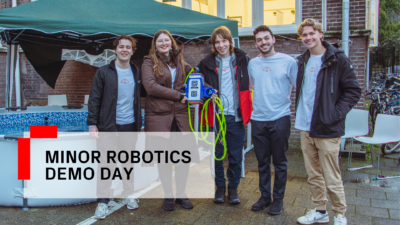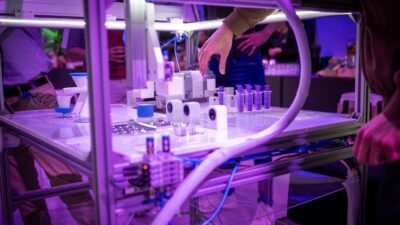The city of Amsterdam envisions a future where fleets of autonomous boats cruise its many canals to transport goods and people, collect trash, or self-assemble into floating stages and bridges.
About a quarter of Amsterdam’s surface area is water, with 165 canals winding alongside busy city streets. Several years ago, MIT and the Amsterdam Institute for Advanced Metropolitan Solutions (AMS Institute) teamed up on the Roboat project. The autonomous boats — rectangular hulls equipped with sensors, thrusters, microcontrollers, GPS modules, cameras, and other hardware — will provide intelligent mobility on water to relieve congestion in the city’s busy streets.
The project is primarily driven by MIT, but researchers from Wageningen University & Research and TU Delft are also involved. For example, Javier Alonso and Michal Cap of the TU Delft Robotics Institute have developed methods that enable Roboats to safely navigate the busy canals.
Another objective is using the Roboat units to automatically form “pop-up” structures, such as foot bridges, performance stages, or even food markets
One of project’s objectives is to create Roboat units that provide on-demand transporation on waterways. Another objective is using the Roboat units to automatically form “pop-up” structures, such as foot bridges, performance stages, or even food markets. The structures will be able to automatically disassemble at set times and reform into target structures for different activities. Additionally, the Roboat units could be used as agile sensors to gather data on the city’s infrastructure, and air and water quality, among other things.
Moving forward
As technological developments of the project are moving rapidly, the research program has decided to move forward with the development of the full-scale model. The 1:1 Roboat will measure 4 meters long and 2 meters wide and will provide a much more stable structure on the water compared to the 1:4 models. The project focuses on presenting the full-scale model in 2020.
Clicke here to read the full Roboat Y3 report.



